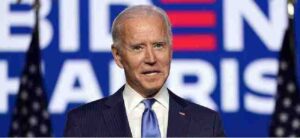The EU will not accept a “veto” by Russia on the bloc’s ties with former Soviet republics, European Commission chief Manuel Barroso has said.
Speaking at a EU meeting in Vilnius, Mr Barroso said the era of “limited sovereignty was over in Europe”. The summit failed to revive an association agreement with Ukraine that was due to be its centrepiece. Ukraine’s president said he could not afford to sacrifice trade with Russia – which opposes the deal – for EU ties. President Viktor Yanukovych froze plans to sign Ukraine’s trade deal last week. In Vilnius, he defended his refusal to sign, saying the EU was not offering adequate financial aid. After the two-day summit, Mr Barroso said: “We will not give in to external pressure, not the least from Russia. “What we cannot accept is a condition on a bilateral agreement to have a kind of a possible veto of a third country. This is contrary to all principles of international law.” EU Council President Herman Van Rompuy said the parties had been “really close” to signing the association agreement, but added that “we need to overcome pressure from abroad”. “We are embarked on a long journey, helping Ukraine to become, as other, what we call now, ‘new member states’. But we have to set aside short-term political calculations.” However progress was made with two other ex-Soviet states, Georgia and Moldova. Both initialled association agreements on Friday, the closing day of the summit, with diplomats hopeful that these can be signed next year. EU leaders said in a statement earlier that they “strongly” disapproved of Moscow’s pressure on Ukraine not to sign – while Russian President Vladimir Putin accused the EU of “blackmail”. Analysts say Russia worked hard to undermine the EU agreement with Ukraine, which it sees as a strategically vital partner. On the one hand, it offered Kiev loans and price discounts. On the other, it threatened painful trade sanctions and higher gas bills. Meanwhile pro-EU protests are continuing in Ukrainian cities against the government’s decision to back out of the agreement. –BBC News




